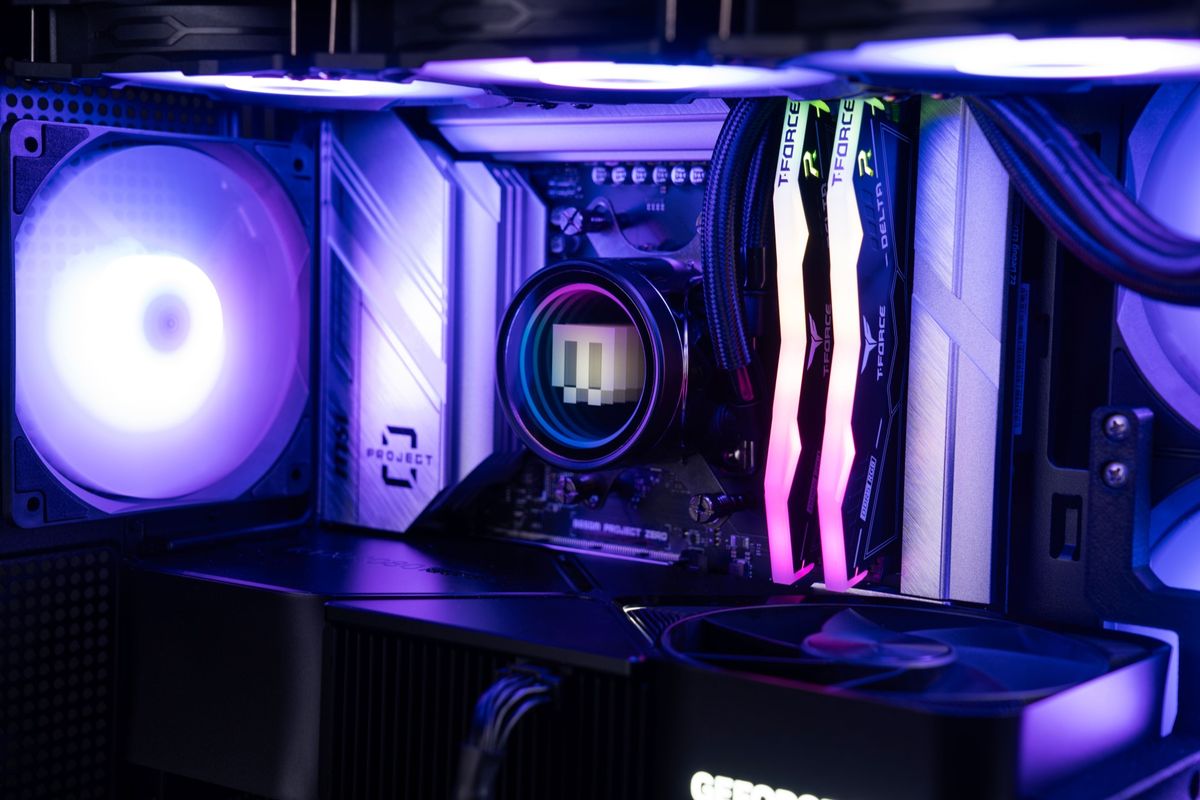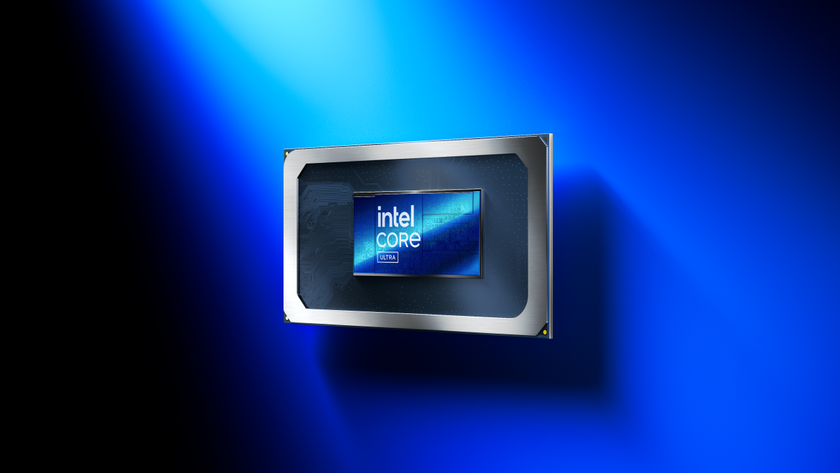Threadripper 7000 is the most reliable CPU as per Puget Systems stats — Nvidia RTX Ada Generation GPUs have the lowest failure rates
Puget Systems says these are the most reliable parts if you're building a PC.

Custom PC builder Puget Systems just released its list of the most reliable hardware for 2024. Puget Systems wants to recognize the best brands and models that delivered “exceptional reliability over the last year.” However, the company noted that its list only represents its experience with its partners and “does not cover the entire computer hardware industry.”
Nevertheless, Puget System’s list is quite encompassing, primarily as it works with several industry brands. The company mainly focused on its desktop workstation and rack station data and only included components with a minimum sale of 200 units.
According to the company’s list, AMD Ryzen Threadripper 7000 and Threadripper Pro 7000WX processors were the most reliable CPUs, achieving a failure rate of 2%. While this is relatively high compared to the other component types, this is less than half of the overall failure rate of processors, which sits at 5% owing to the complexity of modern chips.
Conversely, GPUs have excellent reliability, with an average failure rate of just 0.68%. The Nvidia RTX Ada Generation and Asus GeForce RTX 40-series ProArt GPUs have a lower average failure rate of less than 0.5%, but the Asus GeForce RTX 40-series TUF GPU has achieved an impressive 0% failure rate.
| Component Type | Product Name | Total Failure Rate |
|---|---|---|
| CPU | AMD Ryzen Threadripper 7000 and AMD Ryzen Threadripper PRO 7000WX Series | 2% |
| GPU | Nvidia RTX Ada Generation | less than 0.5% |
| GPU | Asus GeForce RTX 40-Series Pro Art | less than 0.5% |
| GPU | Asus GeForce RTX 40-Series TUF | 0% |
| Motherboard | Asus TUF B760M-Plus Wi-Fi II | less than 1% |
| RAM | Kingston DDR5-5600 32GB (KVR56U46BD8-32) | 0.15% |
| Storage | Kingston KC3000 series NVMe SSDs (1TB, 2TB, and 4TB) | 0.08% |
| PSU | Super Flower LEADEX VII Gold ATX 3.0 1000W / 1300W and Super Flower LEADEX Titanium ATX 3.0 1600W | 0.26% |
Motherboards have a comparatively high failure rate of 4.9% for 2024, likely because of this component's complexity. However, the Asus TUF B760M-Plus Wi-Fi II stood out from the crowd, as it only suffered two failures throughout the year, putting its failure rate at less than 1%.
Kingston also flew high in Puget’s reliability list, with its memory and storage garnering a failure rate of 0.15% and 0.08%, respectively. This is less than a third of the average failure rate for RAM and an impressive 5% of the average failure rate for storage drives.
Lastly, three Super Flower PSUs were graded as the most reliable power supplies, with a combined failure rate of 0.26%. Puget Systems says that Super Flower’s exceptional reliability is the reason it has stuck mainly with this brand in recent years.
Stay On the Cutting Edge: Get the Tom's Hardware Newsletter
Get Tom's Hardware's best news and in-depth reviews, straight to your inbox.
In summary, these five brands dominated Puget’s reliability list for 2024: AMD, Nvidia, Asus, Kingston, and Super Flower. So, if you’re building a system yourself, you can look at these companies and have some confidence that you’re getting a relatively reliable component.
You should note that even though these companies made some specifically reliable parts, they may also have some failures. For example, Puget Systems had issues with AMD Ryzen desktop processors last year. While it wasn’t as bad as what Intel experienced, it was still significant enough to be mentioned in the report.

Jowi Morales is a tech enthusiast with years of experience working in the industry. He’s been writing with several tech publications since 2021, where he’s been interested in tech hardware and consumer electronics.
-
dalek1234 Given that Intel CPUs like to burn up, it makes sense that AMD ones are more reliable by default.Reply -
spongiemaster ReplyEven better was the ASUS GeForce RTX 40-Series TUF, with a perfect track record (a 0% failure rate) after hundreds of GPUs sold.
Guess we need to give kudos to TUF users who seem to know how to plug in a power cable. -
ThisIsMe Replydalek1234 said:Given that Intel CPUs like to burn up, it makes sense that AMD ones are more reliable by default.
I’ve only really seen AMD CPUs actually burn up or even explode. You can find many articles and videos on it if you like. Actually reminded me of a throwback to an old school TomsHardware article.
https://www.tomshardware.com/reviews/hot-spot,365-6.html
Anyway, the fact that this builder has a whole system failure rate higher than 1% in the first 5 years is just crazy. We have just under 10 thousand Dell fixed workstations (not including our mobile notebooks/tablets) that get used in a variety of environments. We order them with a 5 year warranty and cycle them out in batches quarterly just as they reach the end of there service dates. Various models all with Intel Core and Xeon processors. In a whole year we might have 5-10 service calls to Dell for repairs on these and it’s usually the motherboard or RAM and also the power supply but less so. Maybe had one failed CPU in the last 3 years. The system was about 4 years old and the motherboard died as well. There are also drive failures of course, but we handle those in house since the old drives have to be destroyed. Luckily this dropped considerably with the switch to SSDs some years back, although 1-2 still fail per year.
The point being that this builder might want to keep its own realized failure rates to itself. Not a very inspiring look. -
wakuwaku Reply
You must be new to this industry. I am sorry but the reality is majority of small and medium sized companies that purchase workstations from low volume SIs like Puget value transparency as much as as giant corporations. Except because they are, you know, LOW VOLUME, the only way to get meaningful statistical information on reliability is to have regular public reports on their overall experience with the parts that they choose to sell pooled together from their overall sales during that period. Without this transparency, we smaller companies cannot make informed decisions on what to buy and who to buy from, and also our employees cannot have a peace of mind if they keep thinking "oh shit i don't know when my stuff will break down". Get out of your man cave and come back to reality please.ThisIsMe said:The point being that this builder might want to keep its own realized failure rates to itself. Not a very inspiring look. -
Thunder64 ReplyThisIsMe said:I’ve only really seen AMD CPUs actually burn up or even explode. You can find many articles and videos on it if you like. Actually reminded me of a throwback to an old school TomsHardware article.
https://www.tomshardware.com/reviews/hot-spot,365-6.html
Anyway, the fact that this builder has a whole system failure rate higher than 1% in the first 5 years is just crazy. We have just under 10 thousand Dell fixed workstations (not including our mobile notebooks/tablets) that get used in a variety of environments. We order them with a 5 year warranty and cycle them out in batches quarterly just as they reach the end of there service dates. Various models all with Intel Core and Xeon processors. In a whole year we might have 5-10 service calls to Dell for repairs on these and it’s usually the motherboard or RAM and also the power supply but less so. Maybe had one failed CPU in the last 3 years. The system was about 4 years old and the motherboard died as well. There are also drive failures of course, but we handle those in house since the old drives have to be destroyed. Luckily this dropped considerably with the switch to SSDs some years back, although 1-2 still fail per year.
The point being that this builder might want to keep its own realized failure rates to itself. Not a very inspiring look.
LOL crapping on AMD for a 25 year old thing that might happen back then in the worst case scenario and thinking it is relevant to today. How many 13 and 14 gen Intel chips have failed? They couldn't even do a recall because they didn't have nearly enough chips to replace faulty ones. Stop being a biased person. -
TerryLaze Reply
That's not what puget is saying......dalek1234 said:Given that Intel CPUs like to burn up, it makes sense that AMD ones are more reliable by default.
Professional CPUs have very little to do with the ones we get on desktop.
Intel's 13th and 14th gen had higher failure rates than intel historically had, but 11th gen is way higher as an outlier and 13/14 is still lower failure rate than amd desktop5/7000 cpus which are, according to many amd fans in this forum, failed server cpus after all.
https://www.pugetsystems.com/blog/2024/08/02/puget-systems-perspective-on-intel-cpu-instability-issues/https://www.pugetsystems.com/wp-content/uploads/2024/07/Puget-Systems-Intel-CPU-Failure-Totals-by-Group-1024x454.png -
TerryLaze Reply
How many have failed?!Thunder64 said:How many 13 and 14 gen Intel chips have failed?
Not somebody complaining that their overclock isn't stable anymore, how many have really failed? -
TerryLaze Reply
Previous generation of ryzen. One year ago, not 25.Thunder64 said:LOL crapping on AMD for a 25 year old thing that might happen back then in the worst case scenario and thinking it is relevant to today.
kiTngvvD5dIView: https://www.youtube.com/watch?v=kiTngvvD5dI -
araghur12 Reply
I mean, I know you're a fanboy and feel the need to defend your favorite poor little multibillion semiconductor behemoth, but at least try not to lie (I know, it's hard when you're categorically wrong, but at least try).TerryLaze said:Previous generation of ryzen. One year ago, not 25.
kiTngvvD5dIView: https://www.youtube.com/watch?v=kiTngvvD5dI
Five seconds is the time it took me to look into the video and see it was a faulty motherboard configuration that cooked the CPU. Not the silicon being systematically screwed like in Intel 13th and 14th generation.
Misconfigured motherboards isn't a new thing, in fact very recently Intel had to reign in on the OEMs for using power limits way above their specification, thus risking damage like in the case above. -
Thunder64 ReplyTerryLaze said:Previous generation of ryzen. One year ago, not 25.
kiTngvvD5dIView: https://www.youtube.com/watch?v=kiTngvvD5dI
You have to be the biggest Intel shill I know and quite honestly it is annoying. That was a rare occurance and was fixed almost immediately. Intel knew they were sending out broken chips for a year or more and just hoped no one we be any wiser. They couldn't compete with AMD so they juiced their chips too much for reviews. The days of Intel "rebates" to ODM's and contra-revenue are over. They have been stepping on rakes for years now.


